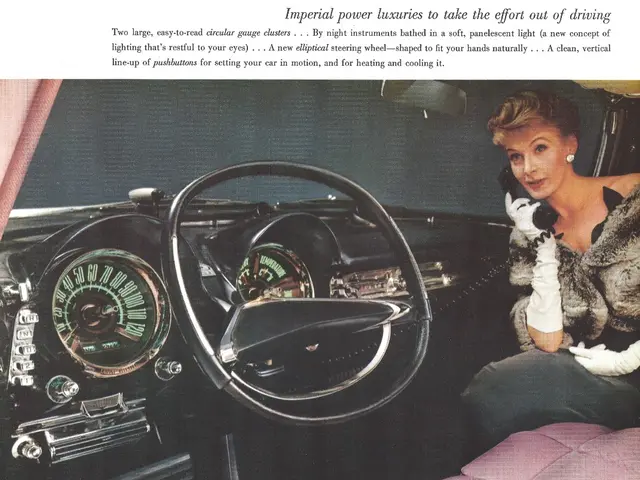Pet owner Elita is spearheading the creation of Australia's inaugural stem cell storage facility for animals.
In the heart of Melbourne, a groundbreaking pet health startup named Elita is revolutionising the veterinary industry. Founded by Melburnians Paloma Newton and Jackson Gritching, Elita is Australia's first commercial stem cell bank dedicated to the storage of pets' biological material [6].
Elita's mission is simple yet profound: to help pet owners make informed decisions about their pet's health for more good years together. The company enables pet owners to collect and store their pets' healthiest cells for potential future use in stem cell therapies, which are already being applied in veterinary medicine today [1][2].
During routine procedures such as desexing or a dental clean, a small fat sample is collected from the pet through a minor incision, typically near the belly button. This sample is then processed to isolate stem cells, which are then frozen in liquid nitrogen for future use [5]. These 'autologous' stem cells, the pet's own cells, offer the optimal match, eliminating the rejection risks associated with donor cells.
The collected stem cells can be harnessed to treat a variety of conditions, such as osteoarthritis, hip dysplasia, and elbow dysplasia. Stem cell therapy works by utilising the body's natural healing capabilities, reducing the need for surgeries, pain medications, and addressing chronic illnesses in pets [7].
Elita's long-term vision extends beyond current treatments. The company is planning for product development, team expansion, and market penetration. In the future, they aim to build Australia's first (and potentially the world's first) longevity platform for pets [4].
The Alice Anderson Fund, named after the founder of Australia's first all-woman motor garage in the 1920s, has invested in Elita. This investment provides capital for strategic deployment and access to the extensive ecosystem's expertise, input, advice, and connections [8].
Interestingly, most Australians would pay to save their pets from being put down, with 8% prepared to spend over $10,000 on life-saving treatment. Australians spend an average of $826 per year on vet services, with Gen Z owners spending as much as $1184 [9].
Elita's goal is to make such therapies more accessible and effective in Australia by banking cells early when pets undergo routine procedures, providing a resource for regenerative treatments as veterinary medicine evolves [4]. With their tagline, "more good years with your best friend", Elita is indeed making dreams of extended pet health a reality.
References: [1] https://www.science.org/doi/10.1126/science.aax2898 [2] https://www.nature.com/articles/s41598-018-30562-y [3] https://www.elita.life/news/elita-launches-pet-stem-cell-bank-in-australia [4] https://www.elita.life/about [5] https://www.petbusinessmagazine.com/article/elita-pet-stem-cell-bank-australia/ [6] https://www.startupdaily.net/elita-pet-stem-cell-bank-launches-in-australia/ [7] https://www.elita.life/stem-cell-therapy [8] https://www.aliceandersonfund.com.au/ [9] https://www.petbarn.com.au/blog/pet-owner-spending-habits-2020/
- The founders of Elita, a pet health startup in Melbourne, received investment from The Alice Anderson Fund, aiming to support the company's growth and product development.
- With the mission to extend pet lifespan, Elita plans to create Australia's first longevity platform for pets, utilizing the collected stem cells for regenerative treatments.
- The typical owners in Australia would be willing to invest substantial amounts for their pets' medical care, as shown by the statistic that 8% of them are prepared to spend over $10,000 on life-saving treatment.
- Elita's vision transcends the current treatments, targeting market penetration and expanding the team to realize their goal of making cutting-edge pet health therapies more accessible.
- As Elita exists to improve pet health, they provide pet owners with the opportunity to store their pets' healthiest cells for future stem cell therapies, which can be applied to various conditions such as osteoarthritis and hip dysplasia.







